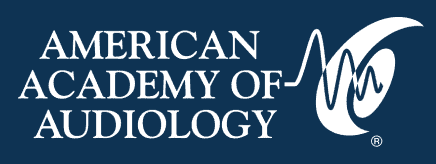At the recent AAA conference in April, there was the usual fusion of seasoned and new audiologists, students, researchers, educators, and professional vendors. And this year, like last year, there was an increased and noticeable presence of audiology assistants among the attendees. Assistants were once again welcomed to AAA and this time the conference offered an extended menu of coursework specifically for these paraprofessionals who have quietly become an important force in the clinical practice of many audiologists. With several academic certificate programs currently offering specialized training as an audiology assistant (AAs), this is an area of growth that the ABA is supporting in alignment with elevating the profession and allowing doctors of audiology to practice at their best level and scope.
As audiology continues to move toward a more professional posture to align with our medical colleagues, it is becoming increasingly clear that the days of “doing it all” may be sunsetting. Whereas audiologists were typically expected to room their own patients, clean their own instruments, order devices and accessories, track all the various reports, schedule appointments, market themselves as professionals in the community, and then tend to every patient’s need, no matter how great or small, this has become an unmanageable model for some practices. A doctor’s time is valuable, and the delegation of some clinical tasks has become a necessity. But how do we relinquish that previous model and move toward something more tenable?
The role of the AA has evolved to become somewhat parallel that of a nurse or even a PA in the medical world, helping the provider focus their practical expertise where it is most needed. By training an AA to high standards, the burden of timely and quality patient care is lifted from the doctoring provider, and patient satisfaction is likely to be improved when an assistant can step in to manage the basic needs of a clinic. A cursory Google search shows there are certificate programs currently available from Nova Southeastern, Georgia State University, Audiology Academy, and others suggesting that the interest level is growing. By extending the provision of care and leaning into a model that includes an AA, the audiologist can concentrate on offering best practices and evidence-based testing and treatment. And isn’t that what we trained for?
Another way to utilize an “extender” is the inclusion of our hearing instrument specialist colleagues. While some will debate that the chasm between these two practitioners is too vast, others are looking to build connective relationships with these individuals who have valuable treatment services to offer. An increasing number of practices, both medical and audiologic, are looking to partner with licensed hearing aid dispensers who can be counted on to perform follow up consultation for hearing aids after the audiologist has done the diagnostic workup. By bringing both disciplines into the sphere of treatment, a new and potentially profitable partnership can be established. Hearing instrument specialists may be the next “extender” in the growing future of audiology, allowing clinicians to live their best clinical lives, providing a higher level of care and fending off the potential burnout that came with “doing it all”.
Our new partners are already out there. How will YOUR practice be changed if you take advantage of these qualified and professional extenders?
Recent Posts
ASLP-IC Readies for Rollout: Here’s What You Need to Know
The Audiology and Speech-Language Pathology Interstate Compact (ASLP-IC) continues to move toward full implementation, expanding opportunities for audiologists and speech-language pathologists to practice across state…
How Do Animals Perceive Music?
Music can be defined as vocal, instrumental, or mechanical sounds, with rhythm, melody or harmony, and often, an expression of human emotion. Music can transcend…
‘Eye’ on Health: AI Detects Dizziness and Balance Disorders Remotely
Interesting research led by audiologist Ali Danesh, PhD, at Florida Atlantic University (FAU) helped develop a novel, proof-of-concept tool to help identify nystagmus using a…



